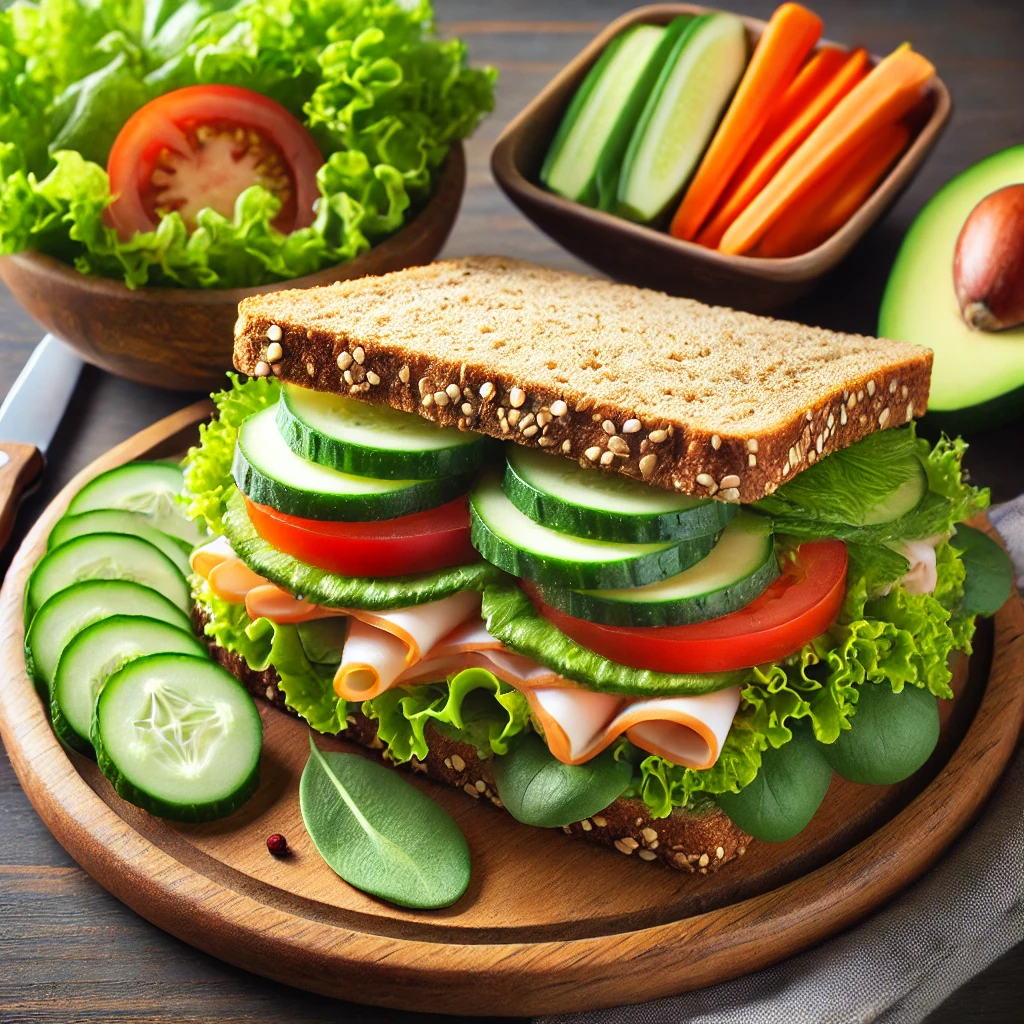Best Tips for Hydration Why and How Much Water You Really Need

Staying hydrated is essential for good health, but with all the information out there, knowing how much water you truly need can be confusing. Hydration is about more than just drinking water—it's about supporting your body with fluids and healthy foods that maintain your energy, improve digestion, and enhance overall wellness. This article explores why hydration is crucial, the amount of water you should ideally drink, and an added bonus recipe for a Low-Calorie Brown Bread Sandwich to help keep you full and fueled.
Why Hydration Is Essential
Our bodies are about 60% water, and this fluid is vital for nearly every bodily function. Here are some primary reasons why staying hydrated is so crucial:
- Energy and Focus: Dehydration can lead to fatigue, poor concentration, and even mood swings. Staying hydrated keeps your brain sharp and your energy levels up.
- Digestion and Detoxification: Water helps break down food, absorb nutrients, and flush out toxins through sweat and urine.
- Skin Health: Hydration supports your skin’s elasticity, keeping it fresh and reducing the risk of dryness or premature aging.
- Joint Lubrication and Muscle Function: Proper hydration prevents muscle cramps and supports joint health, making it easier to stay active and feel your best.
How Much Water Do You Really Need?
While the “8 glasses a day” rule is commonly cited, hydration needs vary based on several factors, including your age, activity level, and climate. Here are some general guidelines:
- Listen to Your Body: Thirst is the body’s natural signal that you need to drink. Pay attention to thirst cues and drink water throughout the day.
- Calculate Your Needs: A good rule of thumb is to drink half an ounce to an ounce of water per pound of body weight. For example, a 150-pound person would need approximately 75–150 ounces of water per day.
- Adjust for Activity and Climate: Hot weather, exercise, or a high-protein diet can increase your hydration needs. During these times, consider increasing your water intake.
- Include Hydrating Foods: Many fruits and vegetables, like cucumbers, oranges, and strawberries, have high water content, helping you stay hydrated without always needing to drink water.
Low-Calorie Brown Bread Sandwich Recipe for Hydration and Energy
To complement your hydration habits, fueling up with nutritious snacks helps maintain energy levels throughout the day. Here’s a simple recipe for a Low-Calorie Brown Bread Sandwich that’s perfect for hydration and nourishment.
Low-Calorie Brown Bread Sandwich Recipe
Ingredients:
- 2 slices of brown bread (whole grain for added fiber)
- 1/4 cucumber, thinly sliced
- 1 small tomato, thinly sliced
- A handful of fresh spinach or lettuce
- 1 tablespoon low-fat cottage cheese or Greek yogurt
- Salt and pepper to taste
- A dash of lemon juice for added flavor
Instructions:
- Toast the brown bread lightly for a crunchy texture.
- Spread the low-fat cottage cheese or Greek yogurt on one side of each bread slice.
- Layer the cucumber, tomato, and spinach on top.
- Sprinkle with salt, pepper, and a dash of lemon juice.
- Place the other slice of bread on top, cut in half, and enjoy!
Why This Sandwich Supports Hydration:
The fresh vegetables in this sandwich, like cucumber and tomato, are high in water content, which helps with hydration. Pairing these veggies with a low-calorie whole grain option keeps you full while providing a balanced snack or light meal that supports your hydration goals.
Top Tips for Staying Hydrated
- Start Your Day with Water – Drink a glass of water first thing in the morning to kickstart your metabolism and rehydrate after hours of sleep.
- Keep a Water Bottle Handy – Carry a reusable water bottle wherever you go, making it easier to sip water throughout the day.
- Flavor Your Water – If plain water feels boring, add slices of fruit, mint, or a dash of lemon for natural flavor without extra calories.
- Eat Hydrating Foods – Foods like watermelon, oranges, cucumber, and lettuce contribute to your water intake.
- Set Reminders – If you often forget to drink, set hourly reminders on your phone or try a water-tracking app to build the habit.
- Balance with Electrolytes – If you’re very active or sweating a lot, consider drinks with electrolytes or foods like bananas and oranges that naturally replenish these minerals.
- Limit Dehydrating Drinks – Caffeinated drinks and alcohol can have a dehydrating effect, so balance them with additional water.
Conclusion
Staying hydrated doesn’t have to be complicated. By listening to your body, drinking water throughout the day, and enjoying hydrating foods, you can easily meet your hydration needs. Pair these habits with light, nutritious meals like the Low-Calorie Brown Bread Sandwich, which supports hydration and keeps you energized. Remember, consistency is key to staying hydrated and feeling your best.

- Questions and Answers
- Opinion
- Story/Motivational/Inspiring
- Technology
- Art
- Causes
- Crafts
- Dance
- Drinks
- Film/Movie
- Fitness
- Food
- Spiele
- Gardening
- Health
- Home
- Literature
- Music
- Networking
- Other
- Party
- Religion
- Shopping
- Sports
- Theater
- Wellness
- News
- Culture
- War machines and policy

